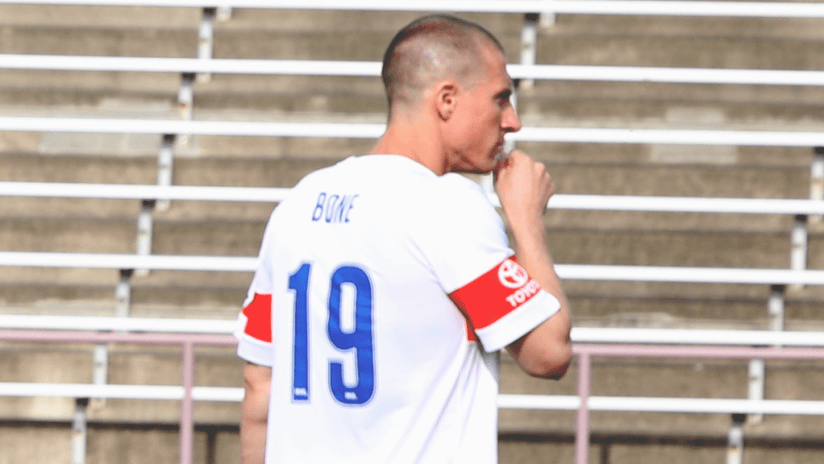If I asked you the meaning of a jersey number, what would you say? There might be as many opinions as people.
If you were a coach, you might start to explain how each number is assigned by position. For example, a forward would usually wear number 9, or wingers would occupy the number 7 or 11. This is mainly used in Europe, not really presenting itself in the US Soccer youth systems. At least not when I was growing up.
If you’re an academy player working your way up through the system your number might represent your progress. Meaning the higher the jersey number the further you are from the “first team”, which are numbers 1-24. This is a motivational tactic. As a player, you know exactly where you stand. You know who is ahead of you, and chasing you. These are indicators of your rank.
FC Cincinnati plays against teams that impose this tactic. Several MLS 2 teams facilitate this process well.
Other reasons might include sentimental family value. For example, my dad was an athlete growing up. He never played soccer, but in every other sport throughout his career he was number 10.
Naturally as I was growing up I always wanted to be number 10, as well. He taught me everything I know about sports. There were coaches along the way, but my dad was the teacher, role model, and player I admired and the 10 on my back represented that.
Interestingly, in soccer, number 10 has an underlying meaning beyond family history. We’ll delve into that hidden significance later on.
Numbers and their meanings have evolved with the game itself. The icons that have worn them have changed, too. This week’s Corben’s Corner will look at the meaning behind numbers.
I have worn number 19 my entire professional career and while there is a story behind it, it’s not sentimental.
I left college as a confident and attacking young player. Part of that confidence and assurance was my jersey number. I wore number 10.
Wait, how does that correlate? What does a number have to do with emotion?
In soccer, the number 10 is a statement number. It defines a player.
By definition, at least historically, the number 10 is the maestro. He is the playmaker, creative genius, and offensive juggernaut that bear heavy offensive weight.
Honestly, this number is different from others because it isn’t chosen; it is inherited through reputation.
Pele, Maradona, Zidane, and Messi are some examples of players that have worn number 10.
I’m not any of those players, but by wearing that number I obtained some sort of confidence through its aura.
As I transitioned from college to the professional ranks I had the opportunity to be number 10 once again.
I knew I had accomplished my goals as a college player, but how would I rank in MLS? Did I have the ability or spark to wear that number on a professional team?
I didn’t think so. I turned it down.
Here’s why: I was too nervous, indecisive and tentative to accept a number that I didn’t think I could live up to.
The year before I got to the Chicago Fire Cuauhtemoc Blanco resided in the 10 jersey. If you don’t know who that is Google him and you’ll understand my reservation with filling his shoes. I accepted the number 19 jersey instead.
I started my professional career second-guessing all the attributes that got me there. I didn’t think I deserved to wear number 10.
Maybe I did, or maybe I didn’t. Either way I should have believed in myself enough to accept it.
I don’t regret it, but it affected me subconsciously. It planted doubt in my mind before I even stepped foot on the field. Eventually, that lack of confidence seeped onto the pitch.
It was like playing in a different person’s body. I wasn’t being creative and I was making abnormal mistakes. It was a fearful way to play soccer. All of a sudden that nonchalant number decision became more and more detrimental.
I believe the difference in performance on the field is highly mental. Certain qualities and characteristics can mean a lot, but mental stability is everything.
When I declined number 10 my mentality changed for the worse. I became inferior to the player I previously was and have been trying to find that mental stability ever since.
Number 19 has been a learning experience for me. It started out as nothing; a default, but I’ve been loyal to it and it’s taught me a lot.
FC Cincinnati is the fourth team that I have suited up with 19 on my back. I could have changed. I was probably inclined to switch it up at some point, but I maintained.
I don’t have a real reason why, but it seems it was meant to be.
It started out as a symbol for reluctant belief in myself, but now it represents the adversity I’ve endured and overcame, including the self-inflicted obstacles.
My number has become a part of my journey. It has accurately represented my path as a professional soccer player. Traveling with me through my bad years, and now the good.
Number 19 has given me a different type of mental strength. I’ve grown to appreciate the process of perseverance and built a newfound confidence.
It’s a great reminder that this game is always challenging you.
There is always something around the corner, but if you stay true to who you are and what you believe in, most importantly yourself, then you’ll find your identity.
I’ll always have a special place in my heart for number 10. My dad, its aura, and the reputation that comes with it is eternal, but I’m proud to be number 19.





